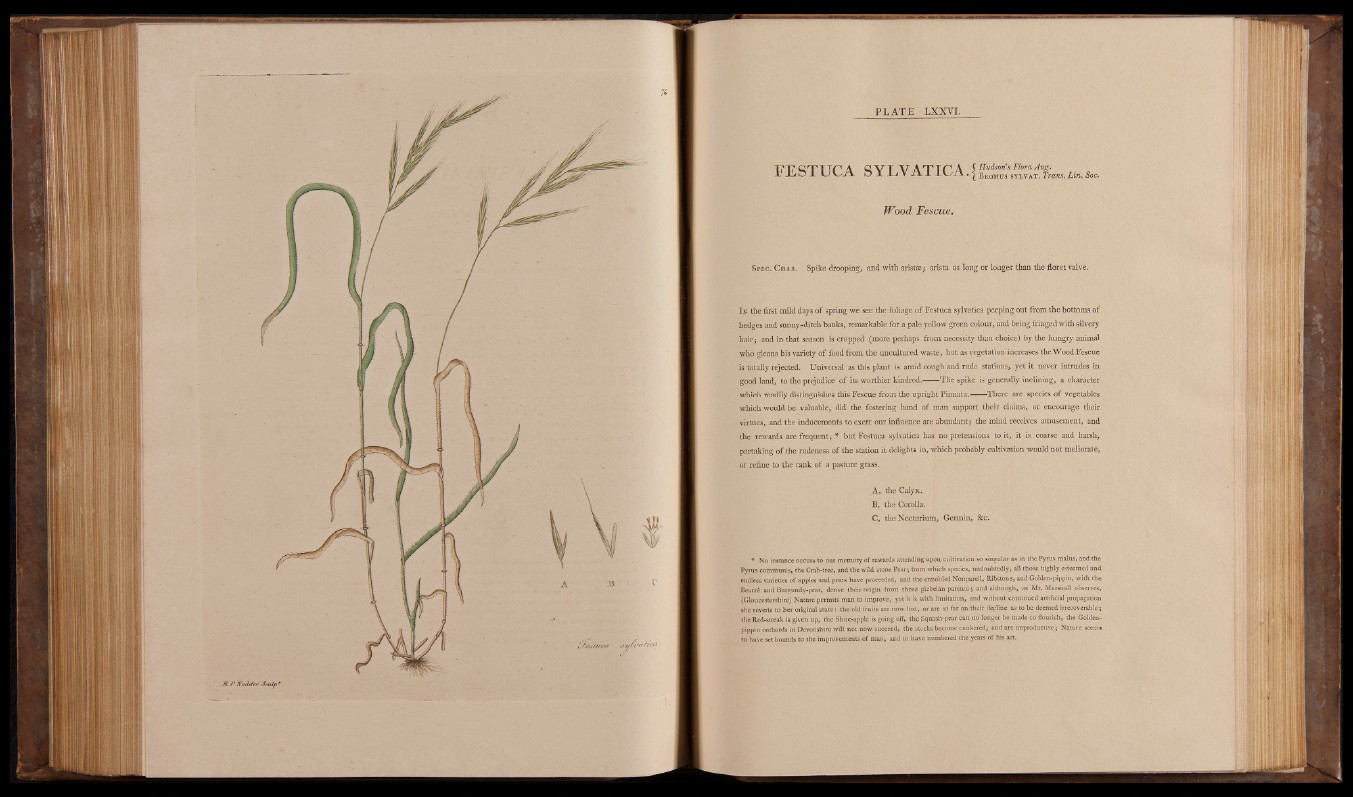
FESTUCA SYLVATICA. {Hudson's Flora Ang.
Bkomus sylvat. Trans. Lin. Soc.
Wood Fescue.
Spec. Char. Spike drooping, and with aristae,- arista as long or longer than the floret valve.
In the first mild days of spring we see the foliage of Festuca sylvatica peeping out from the bottoms o f
hedges and sunny-ditch banks, remarkable for a pale yellow green colour, and being fringed with silvery
hair; and in that season is cropped (more perhaps from necessity than choice) by the hungry animal
who gleans his variety o f food from the uncultured waste, but as vegetation increases the Wood Fescue
is totally rejected. Universal as this plant is amid rough and rude stations, yet it never intrudes in
good land, to the prejudice o f its worthier kindred|||—The spike is generally inclining, a character
which readily distinguishes this Fescue from the upright Pinnata.------There are species of vegetables
which would be-valuable, did the fostering hand of man support their claims, or encourage their
virtues, and the inducements to exert our influence are abundant; the mind receives amusement, and
the rewards are frequent; * but Festuca sylvatica has no pretensions to it, it is coarse and harsh,
partaking of the rudeness o f the station it delights in, which probably cultivation would not meliorate,
or refine to the rank o f a pasture grass.
A, the Calyx.
B, the Corolla.
C, the Nectarium, Germin, &C.
* No instance occurs to our memory of rewards attending upon cultivation so singular as in the Pyrus malus, and the
Pyrus communis, the Crab-tree, and the wild stone Pear; from which species, undoubtedly, all those highly esteemed and
endless varieties of apples and pears have proceeded, and the ennobled Nonpareil, Ribstone, and Golden-pippin, with the
Beurré and Burgundy-pear, derive their origin from those plebeian parents ; and although, as Mr. Marshall observes,
(Gloucestershire) Nature permits man to improve, yet it is with limitation, and without? continued artificial propagation
she reverts to her original state : the old fruits are now lost, or are so far on their decline as to be deemed irrecoverable;
the Red-streak is given up, the Shire-apple is going off, the Squash-pear can no longer be made to flourish, the Golden-
pippin orchards in Devonshire will not now succeed, the stocks become cankered, and are unproductive; Nature seems
to have set bounds to the improvements of man, and to have numbered the years of his art.